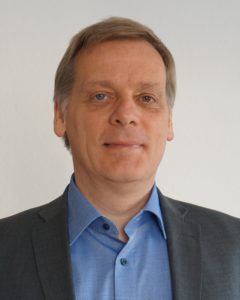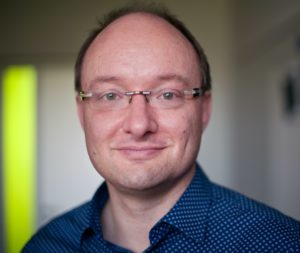 Gerd Stumme
Gerd Stumme
Affiliation: Chair of Knowledge and Data Engineering & Research Center for Information System Design (ITeG) & International Center for Higher Education Research (INCHER) @ University of Kassel & Research Center L3S & Tensor Centre for Artificial Intelligence
Bibliography: Gerd Stumme is s Full Professor of Computer Science. He is leading the Chair on Knowledge and Data Engineering at the University of Kassel, Executive Director of the Research Center for Information Systems Design (ITeG), director of the International Centre for Higher Education Research (INCHER), full member of the L3S Research Center, and founding member of the Tensor Center for Artificial Intelligence.
He is researching and developing methods and algorithms at the confluence of Data Science, Artificial Intelligence and Mathematics. He is interested in the development of methods for the semantic and structural analysis of (social) networks and for the discovery of concept hierarchies. In the last years, Gerd Stumme has worked in the research areas Semantic Web, Web Mining, Social Bookmarking systems, and recommender systems. Recently, he is returning to his mathematical roots, studying how to exploit mathematical structures (in particular graphs and ordered sets) for knowledge acquisition and knowledge communication.
He established his group, the Knowledge & Data Engineering Group at the University of Kassel, as endowed chair of the Hertie Foundation in 2004. The group is/has been running several web platforms as online laboratory for evaluating its algorithms: the social bookmark and publication sharing system BibSonomy with 1.7 million registered users and 2.6 million accesses per day, the naming platform, the Conferator and MyGroup platforms for gathering social interaction at meetings and in working groups, as well as the platforms Widenoise and Airprobe for the worldwide detection of noise pollution and air quality.
Keynote 1: Towards Ordinal Data Science
Abstract: Order is a predominant paradigm for perceiving and organizing our physical and social environment, to infer meaning and explanation from observation, and to search and rectify decisions. For instance, we admire the highest mountain on earth, observe pecking order among animals, schedule events in time, and organize our collaborations in hierarchies. The notion of order is deeply embedded in our language, as every adjective gives rise to a comparative (e.g., better, more expensive, more beautiful).
In many cases, entities can be ordered through real-valued valuation functions like price or size. However, organizing hierarchical relationships by means of numerical values is not always adequate, as this kind of organization presupposes two important conditions: i) every pair of entities has to be comparable, and ii) the sizes of differences between numerical values are meaningful and thus comparable. In many situations, however, this is not the case.
Order theory provides a more appropriate toolset for describing and analysing such data. Furthermore, specific technical and social processes have been established for dealing with ordinal structures, e.g., deriving the succession order as depth-first linear extension of the royal family tree, or discussing only the borderline cases in scientific programme committees. These processes, however, are rather task-specific — there exist only few generic data analysis and machine learning tasks that are particularly tailored for ordinal data.
In this talk, we will argue for a comprehensive development of data science methods for ordinal data, as they lack the large variety of methods that have been developed for other data types.
[Slides]
Sebastian Rudolph

Affiliation: Computational Logic Group, TU Dresden
Biography: Sebastian Rudolph is Full Professor for Computational Logic at the Institute for Artificial Intelligence at the Faculty of Computer Science at the Technische Universität Dresden. Before, he spent the years 2006 to 2013 as a postdoctoral researcher and project leader in the Knowledge Management group at the Institute AIFB of the Karlsruhe Institute of Technology. He holds a PhD in Algebra from TU Dresden. His research interests comprise Artificial Intelligence, in particular Knowledge Representation and Reasoning and their applications in diverse areas, for instance Semantic Technologies. He deals with problems ranging from theoretical foundations to practical deployment. In 2017, he received an ERC Consolidator Grant.
Keynote 2: Compositional Conceptual Spaces
Abstract: It has often been argued that certain aspects of meaning can or should be represented geometrically, i.e. as conceptual spaces. Vector space models already have quite some tradition in NLP and recently regained interest under the term embeddings in the context of deep learning. The principle of compositionality, going back to Frege, states that the meaning of a complex language construct is a funciton of its constituents’ meanings. A significant body of work in computational linguistics investigates if and how the principle of composittionality can be applied to geometrical models. A decade ago, composittional matrix spece models (CMSMs) were proposed as a unified framework capable of capturing many of the common vector-based composition functions. During the past ten years, more results have been obtained regarding the learnability of CMSMs and their feasibility for practical NLP tasks. This talk gives an overview of theoretical and practical aspects of CMSMs.[Slides]
